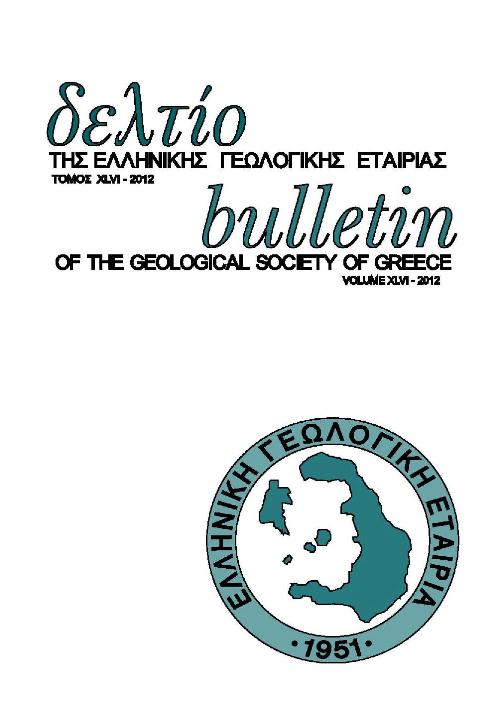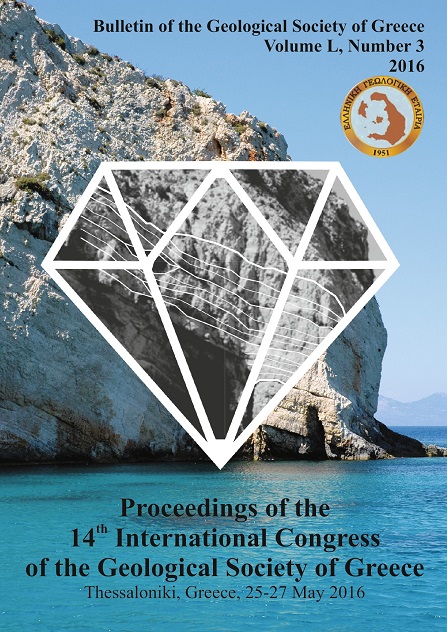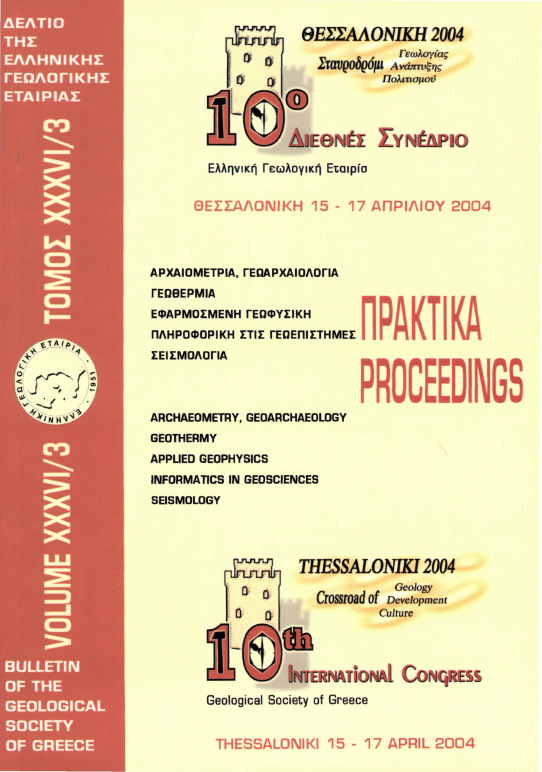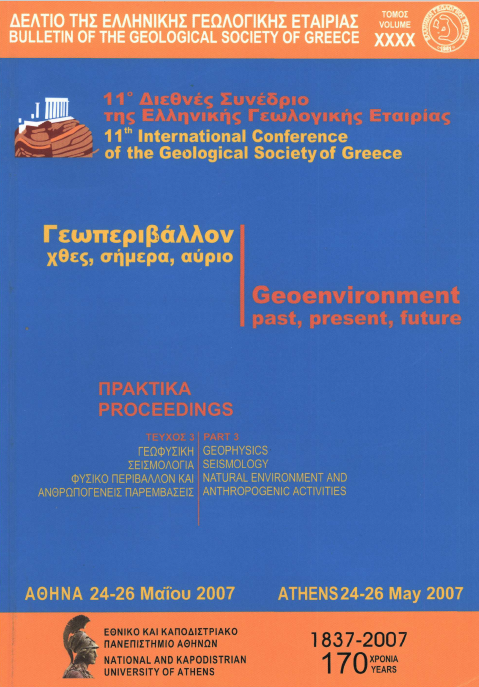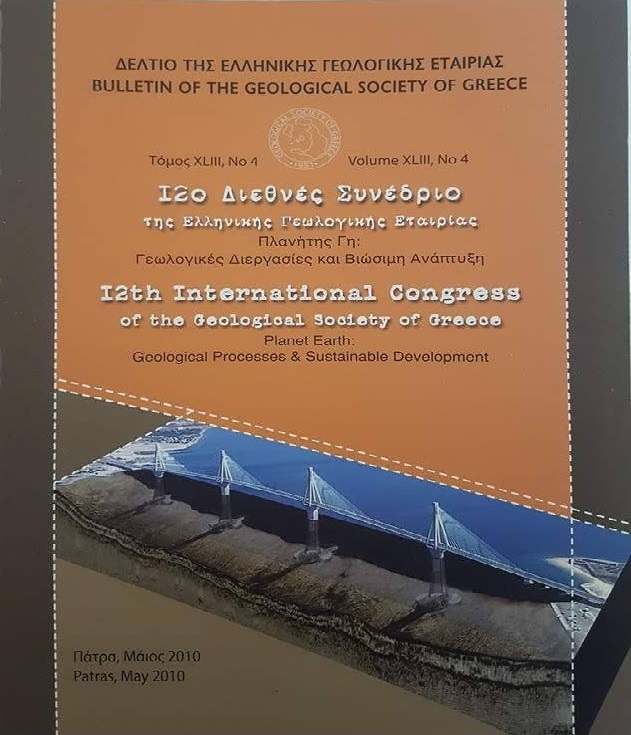ACCELEROMETRIC DATA AND WEB PORTAL FOR THE VERTICAL CORINTH GULF SOFT SOIL ARRAY (CORSSA)
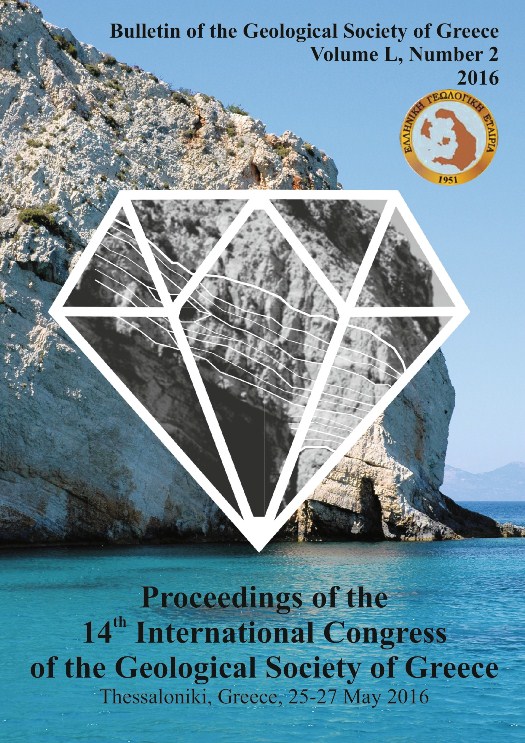
Περίληψη
Οι χροϊνοιστορίες της εδαφικής επιτάχυνσης που καταγράφηκαν κατά τη διάρκεια της πολυετούς λειτουργίας της διάταξης CORSSA (CORinth Soft Soil Array) στην υψηλής σεισμικότητας περιοχή του Αιγίου, ομογενοποιήθηκαν και οργανώθηκαν σε βάση δεδομένων MySQL. Στην παρούσα εργασία περιγράφουμε τα περιεχόμενα της βάσης αυτής και τον ειδικό διαδικτυακό τόπο που σχεδιάστηκε προκειμένουνα διευκολυνθεί η διάχυση των περιεχομένων στην επιστημονική κοινότητα. Η διάταξη CORSSA, η οποία εγκαταστάθηκε στο πλαίσιο του Ευρωπαϊκού ερευνητικού προγράμματος CORSEIS, περιλαμβάνει πέντε επιταχυνσιογράφους τριών συνιστωσών ευρέος φάσματος, έναν στην επιφάνεια του εδάφους και τέσσερις σε διαφορετικά βάθη (14-180 μ) εντός ειδικά κατασκευασμένων νγεωτρήσεων. Στόχος της εγκατάστασης και λειτουργίας της διάταξης υπήρξε η συλλογή υψηλής ποιότητας δεδομένων για τη μελέτη της συμπεριφοράς του εδάφους κατά τη διάρκεια του εδαφικού κραδασμού που προκαλούν οι σεισμοί, αλλά και της σεισμικότητας της περιοχής γενικότερα. Μέχρι σήμερα, η διάταξη CORSSA έχει καταγράψει περισσότερους από 549 τοπικούς και περιφερειακούς σεισμούς με μεγέθη που κυμαίνονται από 1.1 έως 6.5. Παρ’ ό,τι το σύνολο των μέχρι σήμερα καταγραφών αντιστοιχούν σε χαμηλής επιτάχυνσης χρονοϊστορίες, η αξία τους έγκειται στο ότι τα πειραματικά πεδία στα οποία έχει διεξαχθεί παρόμοια εκτενής σεισμολογική και γεωτεχνική έρευνα σπανίζουν ανά τον κόσμο.
Λεπτομέρειες άρθρου
- Πώς να δημιουργήσετε Αναφορές
-
Kassaras, I., Roumelioti, Z., Ktenidou, O.-J., Pitilakis, K., Voulgaris, N., & Makropoulos, K. (2016). ACCELEROMETRIC DATA AND WEB PORTAL FOR THE VERTICAL CORINTH GULF SOFT SOIL ARRAY (CORSSA). Δελτίο της Ελληνικής Γεωλογικής Εταιρείας, 50(2), 1081–1090. https://doi.org/10.12681/bgsg.11813
- Ενότητα
- Κλιματολογία

Αυτή η εργασία είναι αδειοδοτημένη υπό το CC Αναφορά Δημιουργού – Μη Εμπορική Χρήση 4.0.
Οι συγγραφείς θα πρέπει να είναι σύμφωνοι με τα παρακάτω: Οι συγγραφείς των άρθρων που δημοσιεύονται στο περιοδικό διατηρούν τα δικαιώματα πνευματικής ιδιοκτησίας επί των άρθρων τους, δίνοντας στο περιοδικό το δικαίωμα της πρώτης δημοσίευσης. Άρθρα που δημοσιεύονται στο περιοδικό διατίθενται με άδεια Creative Commons 4.0 Non Commercial και σύμφωνα με την οποία μπορούν να χρησιμοποιούνται ελεύθερα, με αναφορά στο/στη συγγραφέα και στην πρώτη δημοσίευση για μη κερδοσκοπικούς σκοπούς. Οι συγγραφείς μπορούν να: Μοιραστούν — αντιγράψουν και αναδιανέμουν το υλικό με κάθε μέσο και τρόπο, Προσαρμόσουν — αναμείξουν, τροποποιήσουν και δημιουργήσουν πάνω στο υλικό.



